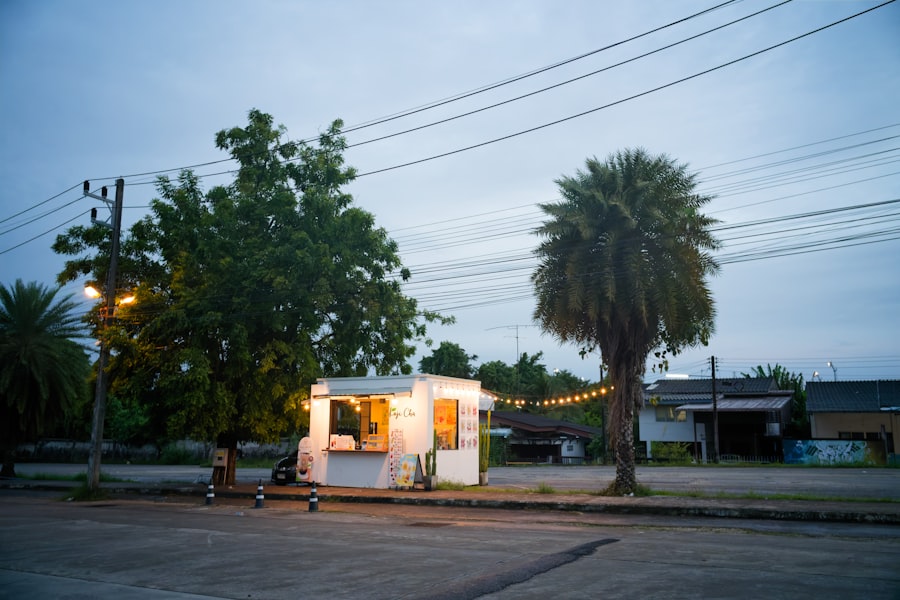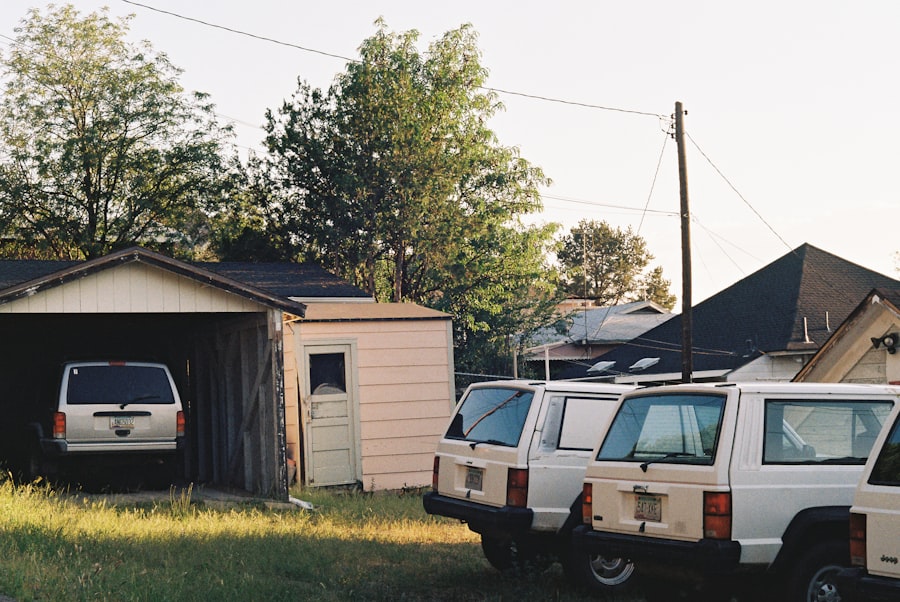Mobile home communities, often referred to as manufactured home communities, are residential areas specifically designed to accommodate mobile or manufactured homes. These communities can vary significantly in size, layout, and amenities, but they typically offer a unique living arrangement that combines the benefits of homeownership with the convenience of community living. Unlike traditional neighborhoods where homes are built on permanent foundations, mobile homes are constructed in factories and transported to their designated sites.
This distinction allows for a more affordable housing option, making mobile home communities an attractive choice for many individuals and families. The structure of mobile home communities can range from small, intimate settings with just a handful of homes to larger developments that house hundreds of residents. Many of these communities are located in suburban or rural areas, providing a peaceful environment away from the hustle and bustle of city life.
Residents often own their mobile homes but lease the land on which they sit, creating a unique dynamic in terms of property rights and responsibilities. Understanding this framework is crucial for potential residents, as it influences everything from financial obligations to community engagement.
Key Takeaways
- Mobile home communities offer affordable and flexible housing options with unique community benefits.
- Key factors when choosing a community include location, amenities, and community rules.
- Popular amenities to consider are recreational facilities, maintenance services, and security features.
- Understanding and adhering to community rules is essential for a harmonious living experience.
- Building relationships and participating in community activities fosters a strong sense of belonging.
Benefits of Living in a Mobile Home Community
One of the primary benefits of living in a mobile home community is affordability. The cost of purchasing a mobile home is generally lower than that of a traditional site-built home, making it an accessible option for first-time buyers or those on a fixed income. Additionally, many mobile home communities offer lower property taxes and utility costs compared to conventional housing.
This financial advantage allows residents to allocate their resources toward other essential areas of their lives, such as education, healthcare, or leisure activities. Another significant benefit is the sense of community that often flourishes within these neighborhoods. Mobile home communities tend to foster close-knit relationships among residents, as many people share similar life stages or experiences.
This camaraderie can lead to organized social events, support networks, and collaborative activities that enhance the overall living experience. For instance, many communities host potlucks, game nights, or holiday celebrations that encourage interaction and bonding among neighbors. Such social opportunities can be particularly beneficial for individuals who may feel isolated or lonely, providing them with a sense of belonging and connection.
How to Find Mobile Home Communities Near Me

Finding mobile home communities in your area can be accomplished through various methods, each offering unique advantages. One effective approach is to utilize online resources such as real estate websites and dedicated mobile home community directories. Websites like Zillow, Realtor.com, and specialized platforms like MHVillage allow users to search for available properties based on location, price range, and community features.
These platforms often provide detailed listings that include photos, descriptions, and contact information for community managers or real estate agents. In addition to online searches, local newspapers and community bulletin boards can serve as valuable resources for discovering mobile home communities. Many communities advertise available lots or homes for sale through classified ads or community announcements.
Visiting local real estate offices can also yield fruitful results; agents familiar with the area may have insights into lesser-known communities or upcoming listings that are not yet publicly advertised. Engaging with local residents or attending community events can further enhance your understanding of the options available in your vicinity.
Factors to Consider When Choosing a Mobile Home Community
| Factor | Description | Importance Level | Typical Range/Options |
|---|---|---|---|
| Location | Proximity to work, schools, shopping, and healthcare facilities | High | Urban, Suburban, Rural |
| Community Amenities | Facilities such as pools, clubhouses, playgrounds, and fitness centers | Medium to High | Basic to Extensive |
| Lot Rent | Monthly fee for renting the land where the mobile home is placed | High | Low to High (varies by location and amenities) |
| Rules and Regulations | Community policies on pets, home modifications, and noise | Medium | Strict to Lenient |
| Safety and Security | Presence of security measures like gated access and neighborhood watch | High | Basic to Advanced |
| Community Demographics | Age groups, family types, and lifestyle preferences of residents | Medium | Retirement, Family-oriented, Mixed |
| Maintenance and Management | Quality of community upkeep and responsiveness of management | High | Professional to Informal |
| Accessibility | Ease of access to public transportation and major roads | Medium | Good to Poor |
| Resale Value | Potential for property value appreciation or depreciation | Medium | Stable to Variable |
| Utilities and Services | Availability and quality of water, electricity, sewage, and internet | High | Standard to Premium |
When selecting a mobile home community, several critical factors should be taken into account to ensure that it aligns with your lifestyle and needs. One of the foremost considerations is location. Proximity to essential services such as grocery stores, healthcare facilities, schools, and public transportation can significantly impact your daily life.
A community situated near major highways or public transit routes can enhance accessibility and convenience, making it easier to commute to work or access recreational activities. Another important factor is the overall atmosphere and demographic of the community. Some mobile home parks cater primarily to retirees seeking a quiet environment, while others may be family-oriented with amenities designed for children and young adults.
Understanding the community’s demographic can help you gauge whether it will be a good fit for your lifestyle. Additionally, consider the community’s reputation; researching online reviews or speaking with current residents can provide valuable insights into the quality of life within the community.
Amenities to Look for in Mobile Home Communities
Amenities play a crucial role in enhancing the living experience within mobile home communities. When evaluating potential communities, consider what amenities are available and how they align with your interests and lifestyle. Common amenities found in many mobile home parks include swimming pools, clubhouses, fitness centers, playgrounds, and walking trails.
These facilities not only provide recreational opportunities but also serve as gathering places for residents to socialize and build relationships. In addition to recreational amenities, consider practical features such as on-site maintenance services, laundry facilities, and storage options. Communities that offer these conveniences can significantly reduce the hassle associated with homeownership.
Furthermore, some mobile home parks may provide additional services such as organized activities or events that foster a sense of community among residents. Engaging in these activities can enhance your overall experience and help you feel more connected to your neighbors.
Tips for Moving into a Mobile Home Community

Transitioning into a mobile home community requires careful planning and consideration to ensure a smooth move-in process. One essential tip is to familiarize yourself with the community’s rules and regulations before making any commitments. Each community has its own set of guidelines regarding property maintenance, noise levels, pet ownership, and other aspects of daily living.
Understanding these rules will help you avoid potential conflicts with neighbors or management down the line. Another important aspect of moving into a mobile home community is preparing your home for its new location. This may involve ensuring that your mobile home meets local building codes and regulations regarding installation and safety standards.
Engaging professional movers who specialize in transporting mobile homes can alleviate much of the stress associated with this process. Additionally, consider reaching out to current residents for advice on settling in; they can provide valuable insights into local customs and practices that will help you integrate more seamlessly into the community.
Community Rules and Regulations
Community rules and regulations are an integral part of life in mobile home communities, serving to maintain order and ensure a harmonious living environment for all residents. These rules typically cover various aspects of daily life, including property maintenance standards, restrictions on exterior modifications, noise ordinances, and guidelines for common areas. Understanding these regulations is crucial for prospective residents; failure to comply can result in fines or even eviction in severe cases.
Moreover, many communities have specific policies regarding pets, parking, and guest accommodations. For instance, some parks may impose restrictions on the number or type of pets allowed while others may require pet owners to register their animals with management. Parking regulations may dictate where residents can park their vehicles or whether additional parking permits are necessary for guests.
Familiarizing yourself with these rules before moving in will help you navigate community life more effectively and avoid misunderstandings with management or neighbors.
Building a Sense of Community in Mobile Home Communities
Fostering a sense of community within mobile home parks is essential for creating an enjoyable living environment where residents feel connected and supported. One effective way to build this sense of belonging is through organized social events that encourage interaction among neighbors. Activities such as potlucks, game nights, holiday celebrations, or group outings can provide opportunities for residents to meet one another in a relaxed setting while sharing experiences and building friendships.
Additionally, establishing communication channels within the community can enhance engagement among residents. Many mobile home parks utilize newsletters, social media groups, or bulletin boards to keep residents informed about upcoming events or important announcements. Encouraging participation in these communication platforms fosters transparency and inclusivity while allowing residents to voice their opinions or suggestions regarding community matters.
By actively engaging with one another and participating in communal activities, residents can cultivate a vibrant atmosphere that enhances their overall quality of life within the mobile home community.



